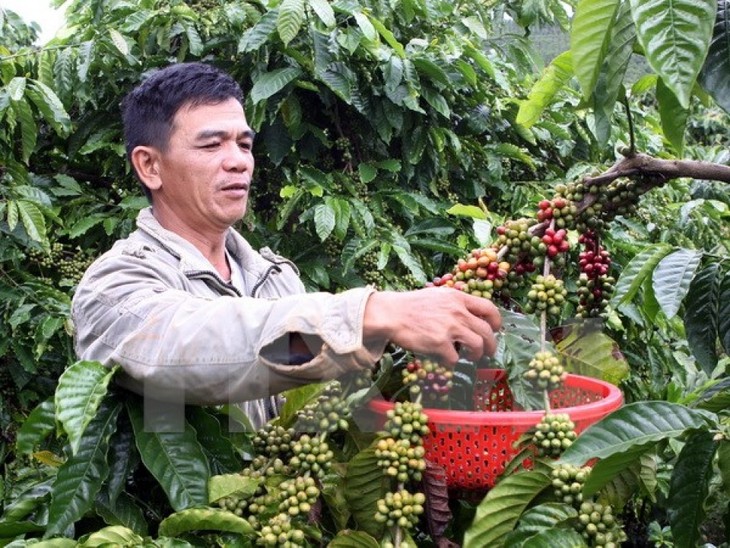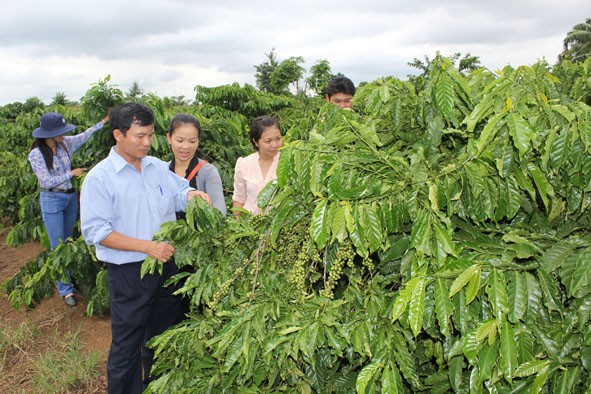(VOVworld) – Producing coffee sustainably has benefited many farm households in Cu M’gar district, Dak Lak province. More than 30 cooperatives and clubs following a sustainable coffee production model have been set up in the district, which has started to change old production habits, helping farmers access advanced technologies, cut input costs, boost product value and incomes, and contribute to local economic growth.
 |
| Vietnam’s Central Highlands coffee now has been recognized internationally. (Photo: VNA) |
Ngo Van Binh’s family in Quang Phu village, Cu M’gar district, has 1.8 hectares of coffee. In the past, Binh and his family experienced low productivity – about 2.5 tons of coffee beans per hectare. Since he joined a club to support sustainable coffee production and learned intensive farming techniques, his productivity has increased to 5 tons per hectare. In the dry season, he only needs about 400 liters of water to irrigate a coffee tree instead of the 700 liters he needed in the past.
“When I decided to participate in the model, my family received technical instructions. Each year, the price of our product has increased,” Binh explained.
A total of 30 cooperatives, cooperative teams, and clubs applying the sustainable coffee production model have been set up in Chư M’Gar district.
The teams have been given information about weather and epidemic diseases of coffee trees, and the model has linked farmers, managers, scientists, and enterprises toward sustainable production.
Through training, coffee production households have learned to conserve water resources and collaborate with each other in harvesting and processing to turn out products of higher quality.

An agricultural engineer of the Ministry of Agriculture and Rural Development visits the sustainable coffee production model in Ea M’nang village, Cu M’gar district. (Photo: baodaklak.vn) |
Nguyen Van Phuc, Director of the Ea Kiet Agriculture and Service Cooperative in Cu M’gar, said: “Each year three or four training courses are held for members of cooperatives to introduce new science and technologies, and teach them how to increase food safety and occupational safety.”
He said even “Specific plans have been made for each month for each production team and communication campaigns have increased public awareness of the model and its importance.”
Cu M’gar has more than 35,500 hectares of coffee and nearly 10,000 households producing 37,000 tons of certified coffee meeting standard regulations. The model has helped locals access new technologies; the value of coffee has increased, and the environment has been protected.
According to Nguyen Van Minh, Deputy Chairman of Cư M’gar People’s Committee, “The district plans to continue persuading people to join cooperatives or clubs to develop coffee sustainably. We will also instruct communes to establish more agricultural cooperatives involving farmers, managers, scientists, and enterprises to help local farmers access new methods of production and improve the quality of the district’s main crop.”